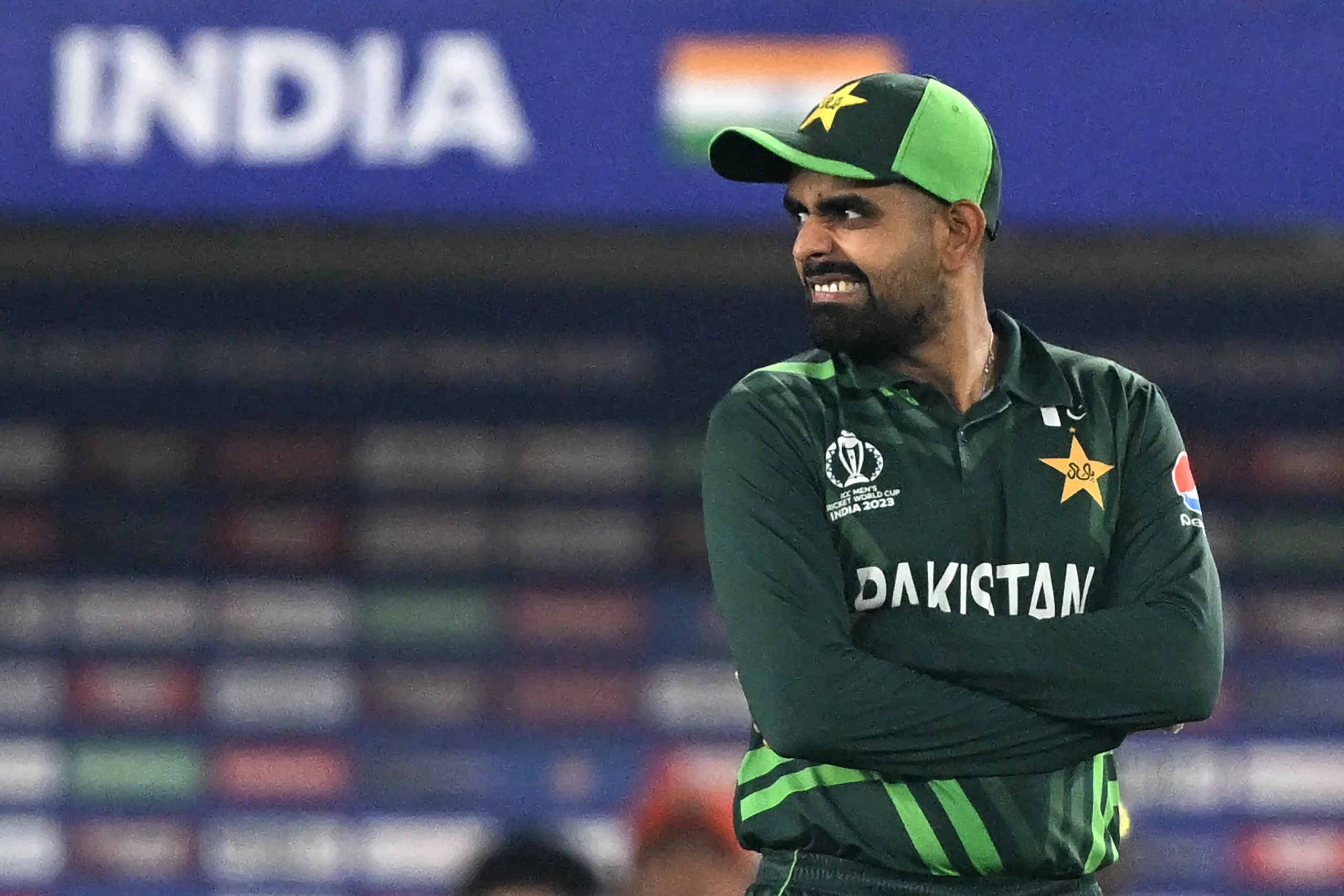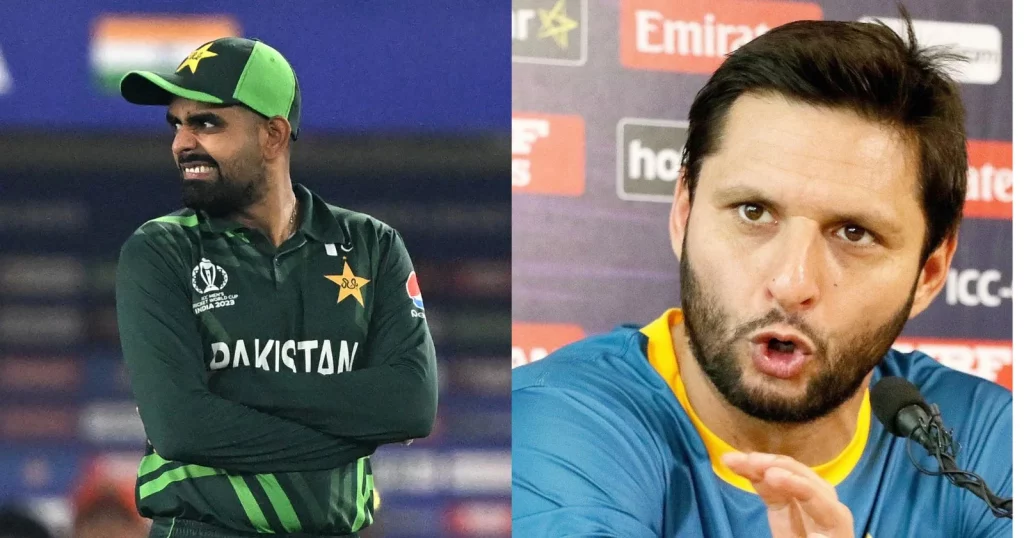Cricket is a paragon of skill, strategy, and cooperation in the sporting world. The appeal of cricket, sometimes known as the “Gentleman’s Game,” stems from this fine balancing act. The captain has a key role in maintaining this equilibrium. Former Pakistani cricket captain and cricketing great Shahid Afridi recently shared some interesting thoughts on the impact a leader can have on his side.
Famous for his powerful batting and inspiring leadership, Shahid Afridi was blunt in his criticism of Pakistan’s fielding. Worried about Pakistan’s chances in the ICC World Cup 2023 after their record eight-wicket defeat to Afghanistan in Chennai, he shared his thoughts. From Afridi’s vantage point, the captain’s hard work on the pitch is what sets him apart. He believes that the captain’s constant dedication to the team serves as an example for the rest of the players. According to him, fielding problems arise “when you are not in the game.
Shahid Afridi talks about Babar Azam’s captaincy

“When you are not in the game [not focused], then these things [fielding issues] will happen. When you are trying to hide somewhere, when you are not thinking positively, I think that at times we are waiting for miracles, miracles don’t just happen. They happen with brave men who know how to fight,” Afridi said.
Afridi’s observations highlight the first and most important rule of leadership: set an example. A captain’s deeds are more important than words in cricket. Afridi reflected on his time as captain and the careers of other players of his era, like Mohammad Yousuf. The team’s morale was boosted whenever the captains showed leadership by playing a key role on the pitch, cheering on their teammates and taking spectacular catches.
He said: “Look, a captain is everything. If a captain gives his best, dives during the field, backs other players between overs, the entire team will get [more] active, because when they see that the captain is giving his all and we are not, they feel ashamed that my captain is doing so much, why can’t I be the same?”
He added: “It has happened in the past, when I was the captain or Mohammad Yousuf was, when we used to run in the ground and support players, then the entire team used to charge up. When Inzamam would dive during the field, then, believe me, we players used to feel ashamed that why are we not diving when the captain is. At the end of the day, everything comes right back to the captain.”
Afridi expounded on the captain’s responsibilities by comparing the Australian cricket team to the Pakistani side. Strategic pressure, he said, is of paramount importance. According to him, “It is the captain’s job to apply pressure, a pacer is bowling and there is no slip? Four are required on 12 balls and you’ve taken backward point? Apply pressure. What do the Australians do? They take one to two wickets and then put all of their players in the circle to apply pressure, like they did against Pakistan.”
The captaincy is a prestigious role with significant responsibilities, but it is not without its difficulties. According to Shahid Afridi, a captain’s efforts are recognised and rewarded when they are successful. When things don’t go as planned, however, it’s usually the captain and the coach that take the hit. The best national cricket teams always have to balance these two aspects.
He said: “Captaining your national side is a matter of honour but it is not a bed of roses. When you do good, everyone praises you and when you don’t, everyone blames you as well as the head coach.”
Pakistan fans are counting down the days till the Pakistani national team faces South Africa on October 27. So far, the squad has a winning record of two games and a losing record of three games. The team’s on-field performance will be examined once again. Shahid Afridi’s observations are a powerful reminder that being a captain means more than just holding the position of leader of the squad. In cricket, the captain is more than simply the team’s leader; he also serves as a role model.

